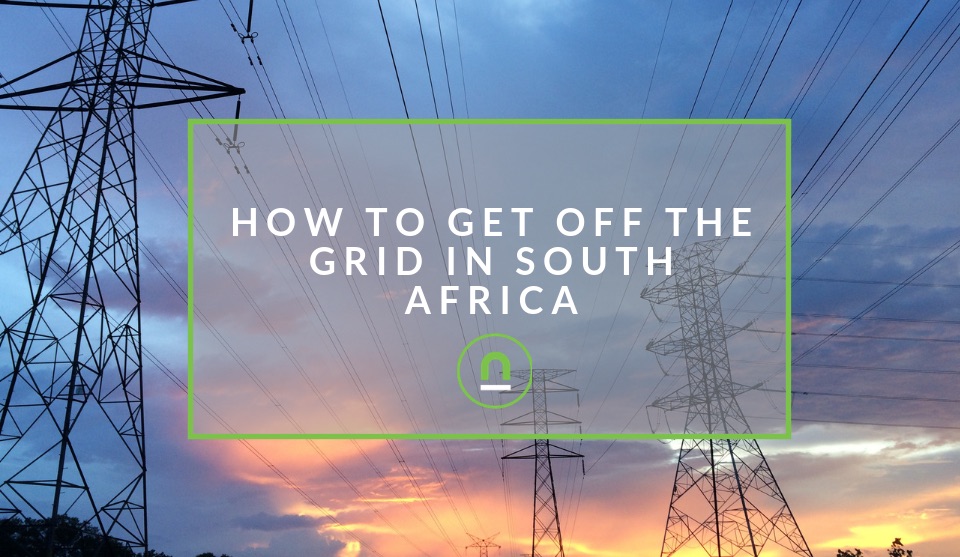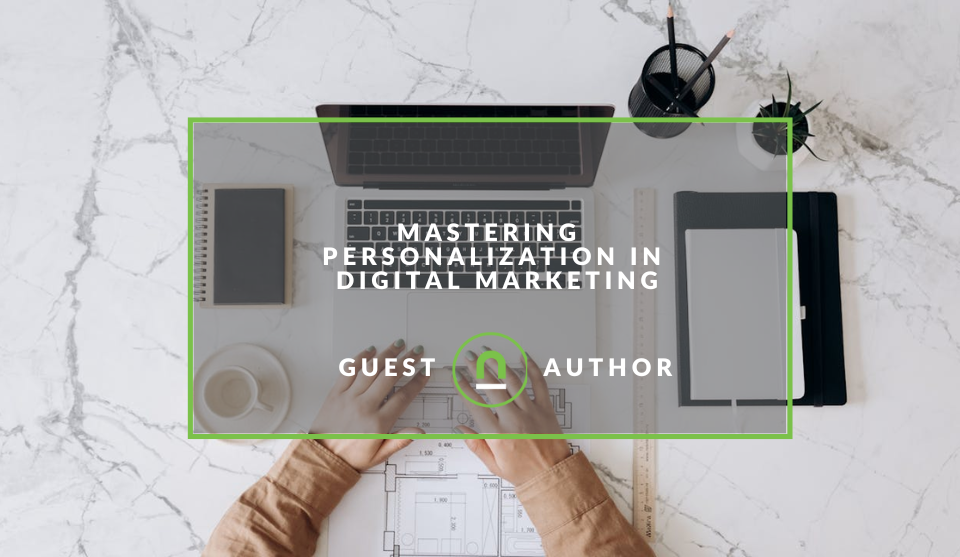Recent posts
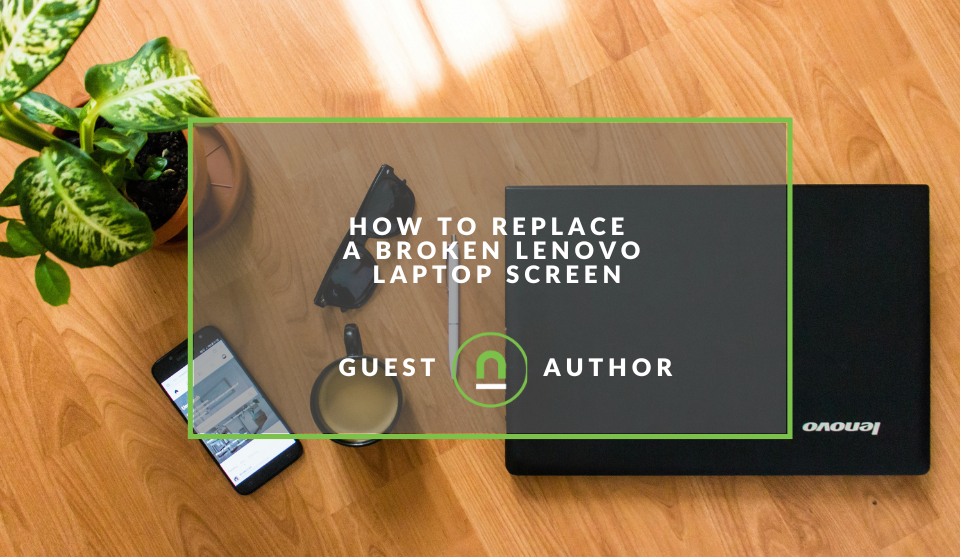
Geek Chic
How to Replace A Broken Lenovo Laptop Screen
24 April 2025
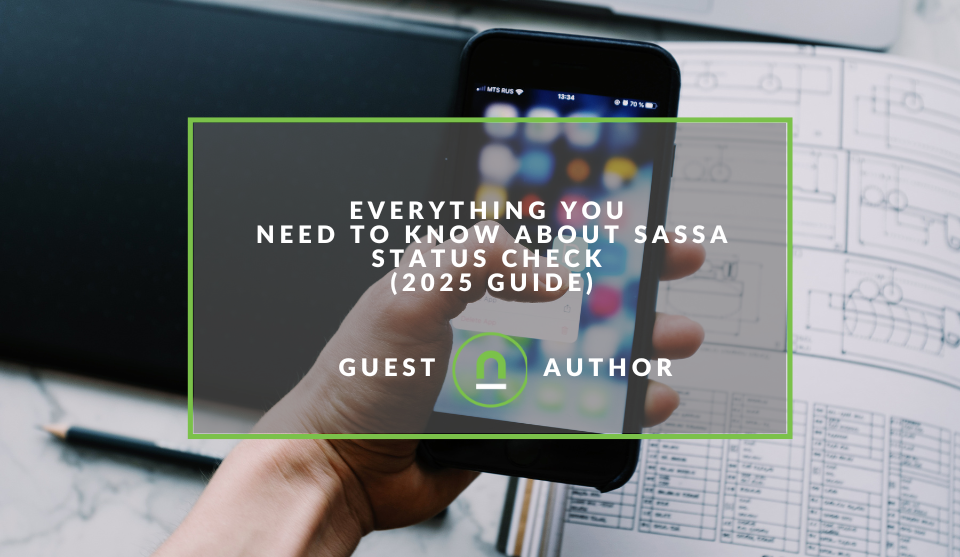
Money Talks
Everything You Need to Know About SASSA Status Check
13 April 2025

Mind, Body & Soul
The Genetic Diversity of Cannabis Seeds
12 April 2025
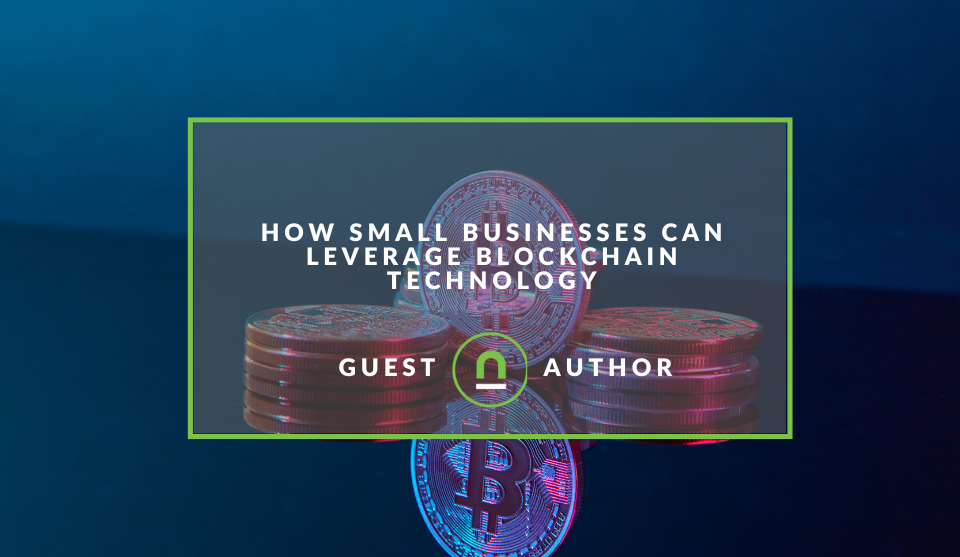
Money Talks
How Small Businesses Can Leverage Blockchain Technology
02 April 2025
Popular posts
Extravaganza
Trending Music Hashtags To Get Your Posts Noticed
24 August 2018
Geek Chic
How To Fix iPhone/iPad Only Charging In Certain Positions
05 July 2020
Extravaganza
Trending Wedding Hashtags To Get Your Posts Noticed
18 September 2018
Money Talks
How To Find Coupons & Vouchers Online In South Africa
28 March 2019
How To Get Off The Eskom Grid In South Africa
01 June 2019 | 0 comments | Posted by Che Kohler in Constructive Criticism
We've been left in the dark time and time again by the national service provider Eskom and while many of us will continue to rely on them as our source of energy to power our homes others are looking at cutting ties and going off the grid. While load shedding may be one popular reason why South African's are looking to generate their own electricity the introduction of carbon taxes and the consistent price hikes on electricity has made investments in alternative renewable power sources a more attractive option.
While being "gatvol" of Eskom may be a unanimous sentiment, not many are taking action, not because it's expensive but because of a lack of information available to the general public. South African's see moving over to renewable energy as huge undertaking but its actually not the case, there are many ways you can start to reduce your reliance on the national grid for all homes and budgets.
If you're ready to consider reducing your grid reliance or want to go fully self-sufficient then here are a couple of things to consider.
1. Change your lighting
Let's start off with reducing your consumption and wastage before we can even think of moving you off the grid. If you're using old incandescent light bulbs, you're literally burning money. Even the new light bulbs have their limitations for energy saving when you have many of them. Replace all your light bulbs with LED light bulbs. This will significantly reduce your current electricity usage and reduce the size of the solar system you require.
2. Reduce your appliance reliance
While appliances may not seem like a big deal since they are used pretty infrequently throughout the day, every time you switch them on they draw enormous amounts of energy to complete for simple tasks. Start by converting your cooking and hot water heaters to alternative power are the next big change. Electric stoves, ovens, geysers, heat pumps and heaters all use excessive amounts of power when considering a solar system. Where possible replace these with their solar or gas alternative.
3. Changing your consumption behaviour patterns
The national grid has spoiled users and we now have a warped vision of how we use electricity. If you're going to prepare for life unplugged, you're going to need to kick a few of those habits. Since your grid is powered up during the day that the best time to use it. Try to position most of your consumption during peak sunlight hours then you'll reduce the load on the batteries during the evening. This might not seem like a big deal but the less discharge you have on your batteries the longer they last, which will save you a ton in maintenance costs down the line.
4. Batteries are a big issue
As mentioned in point 3, batteries have a lifespan. This lifespan is greatly reduced if you're batteries are discharged too far on a regular basis. To avoid having to replace your batteries often, you'll need lots of them. To power a home you're looking at up to 30 large batteries, but fear not, technology is improving all the time and the size and capacity of batteries are improving to keep up with the demands of modern homes.
5. Make sure you have enough space
A full off the grid system requires a lot of space so having a home with enough storage space and surface area is going to be an issue for some. An average off-grid setup will require up to 20 panels (on a 5kW system). Which can be placed on your roof or lawn, while you will also need a cool dry space in your home to store your batteries. Remember, the lifespan of the batteries is also affected by the ambient temperature at which they are kept.
6. Why so many panels and batteries?
Since you will be reliant on the weather for your energy you have to consider the fact that even though we are a sunny country a few overcast days or short days of winter sunlight is going to have an impact on how much energy you can harness. For your system to function uninterupted even with reduced collection fo sunlight you need to have enough battery storage to keep you going.
7. Maintenance
Solar systems generally do not require a lot of maintenance. It is recommended that the average home consumer purchase maintenance-free batteries to avoid the hassle of checking water levels constantly. The one unavoidable aspect is the attention your pannels require. They will be at the mercy of the elements and will need to be cleaned from time to time. Making sire your solar panels are on tip top condition ensures they absorb the maximum amount of energy at the best efficiency rate. A good hose down or wipe down is all you need to keep them going.
8. Return on investment (ROI)
If you're looking to convert a whole house or business it's going to take a considerable investment on your part, the technology is still in its formative stages and will continue to get better. These renewable energy systems may not see you break even for many years but having the peace of mind that you have a reduced electricity bill each month and a consistent feed of energy comes at a certain cost.
If your motivation is financial then you should consider the Hybrid and Grid-Tied systems as alternatives. These systems are far less expensive and can also offer great long term savings and backup to Eskom.
9. Have a backup plan
If your intention is to completely part ways with Eskom, you should keep in mind that all technology has its limitations. If your solar system isn't functioning for one reason or another you will not have power until the problem has been identified and fixed. Investing in a backup to your primary electrical system would be prudent. It doesn't have to be anything big or expensive especially since you've more than likely already converted all the power hungry items in your home or office to be energy efficient.
10. Work with professionals
This is your primary source of electricity so you should not be taking any shortcuts. We realise your uncle may be an electrician but this isn't the type of setup you can string together from a serious of YouTube videos and the use of cost-cutting components.
Make sure that you have good quality components with local backup and support. The installation of an off-grid system will be equally as exciting as it can be frustrating but this is the price you pay for having to become self-sustainable.
How much will this set me back?
Okay, Okay I get it you didn't just come here for a lecture on what to expect when opting for an off-grid lifestyle you came to research on how much it would cost to migrate your home to solar energy. You can start adding a solar panel to your home from as little as R2000 to up to R50 000 for a basic panel and battery installation system. According to business tech:
- One or two small solar panels and battery that will power 10-20 W will cost between R2,000 and R5,000. This is equal to a couple of lights and a cellphone charger.
- A large solar panel and a battery that will power 120W will cost between R9,000 and R16,000. This is equal to about 5 lights or a TV, or a fridge.
- A 1.5kW – 3kW solar PV system, with batteries, can power 280-305 W and will cost in excess of R50,000. This is equal to a few lights, a TV and a fridge.
If you're on the more serious end of the spectrum you may want to look at options like:
| Solis Grid-Tie PV System (1-phase) | Panel Array | Monthly savings (R1,85/kWh) | System Cash price | Monthly loan @ 19%, 60 months |
|---|---|---|---|---|
| 3kW Solis System | 3kW | R832 (450kWh) | R 53 910.00 | R1498 |
| 4kW Solis System | 4kW | R1220 (660kWh) | R 63 100.00 | R1736 |
| 5kW Solis System | 5kW | R1465 (792kWh) | R 82 500.00 | R2240 |
Get down in the dark
Going off the grid completely can be costly, but if you're prepared to make the necessary changes you can ease into it and the cost savings you will have over time especially as electricity will continue to cost more will have you sitting pretty over the next few years. Remember, you don't need to make all the changes at once but starting somewhere is far better than sitting in the dark isn't it?
Do you think its time to go off-grid? Have you gone off grid already? Should South African's be pioneering self-sustained living instead of relying on central services that clearly have the ability to be a single point of failure that can collapse the economy and the livelihood of the countries citizens? Let us know in the comments below.
Get started with nichemarket
Is your business in the dark with many of your customers? Then register with nichemarket, it's easy. All you will need to do is head over to our sign up form and follow the instructions. If you require a more detailed guide on how to create your profile or your listing, then we highly recommend you check out the following articles.
Recommended reading
If you're stuck in the dark and have a few minutes to spare why not dive deeper down the rabbit hole and check out some more posts on load shedding.
- EskomSePush: Best Apps To Keep Up To Date With The Loadshedding
- How South African Businesses Can Take Advantage of Load Shedding
- 30 Songs To Listen To During Loadshedding
- Electric Car Options In South Africa
Tags: energy, electricity
You might also like
Mastering Personalization in Digital Marketing
31 March 2025
Posted by Željka Ristic in Industry Experts
We look at the best content marketing tools to boost engagement and growth and build sustainable marketing campaigns that drive users to take action
Read moreThe Genetic Diversity of Cannabis Seeds
12 April 2025
Posted by Alina Jones in Mind, Body & Soul
A look into the South African heritage of cannabis growing and how the country has taken the plant in terms of growing it into a viable industry & th...
Read more{{comment.sUserName}}
{{comment.iDayLastEdit}} day ago
{{comment.iDayLastEdit}} days ago
 {{blogcategory.sCategoryName}}
{{blogcategory.sCategoryName}}
